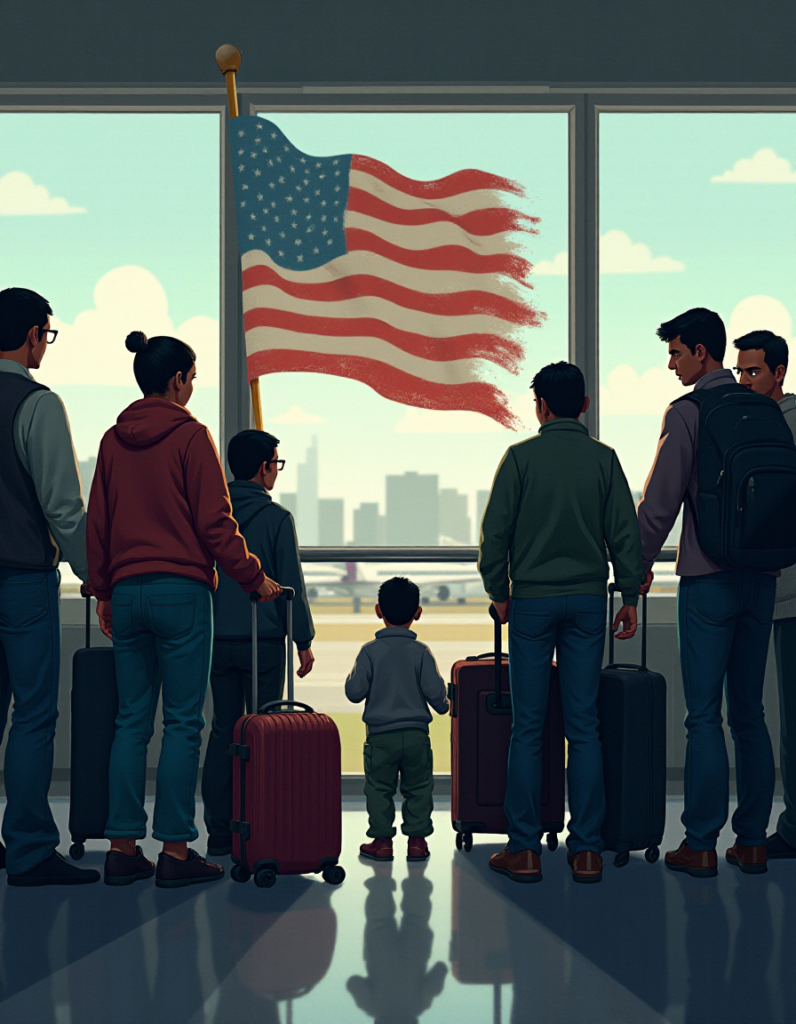Introduction
A coalition of refugee advocacy organizations has filed a lawsuit against the Trump administration’s suspension of the U.S. Refugee Admissions Program (USRAP) and the freezing of federal resettlement funds. The executive order, issued on January 20, 2025, halted refugee admissions, citing concerns over the capacity of U.S. communities to support incoming refugees. The lawsuit challenges this decision, arguing that it exceeds executive authority and causes immediate harm to thousands of vulnerable individuals awaiting resettlement.
Key Takeaways
- Lawsuit Filed: Leading refugee advocacy groups have initiated legal action against the suspension of refugee admissions and funding freezes.
- Plaintiff Organizations: The case includes HIAS, Church World Service, and Lutheran Community Services Northwest among others.
- Legal Claims: The lawsuit asserts that the executive order violates the U.S. Constitution, oversteps presidential authority, and inflicts serious harm on refugees and resettlement agencies.
- Immediate Consequences: Thousands of approved refugees have had their travel plans canceled, and resettlement agencies face funding shortfalls.
- Relief Sought: The plaintiffs seek an injunction to reverse the suspension and allow refugee admissions to resume.
Background on the Refugee Resettlement Suspension
The U.S. Refugee Admissions Program (USRAP) has been a cornerstone of American humanitarian policy, offering refuge to individuals fleeing persecution, war, and violence. Established by Congress, the program sets an annual refugee admissions cap, which is determined by the President in consultation with Congress.
On January 20, 2025, President Donald Trump signed an executive order suspending refugee admissions, arguing that resettlement programs strain local resources and that better assimilation strategies must be developed. The order also froze federal funds allocated to resettlement agencies, leaving non-profit organizations without financial support for ongoing services.
The order took effect immediately, impacting thousands of refugees, including 1,660 Afghans who had already been cleared for resettlement under special humanitarian programs. The suspension also affects Syrian, Venezuelan, and Sudanese refugees awaiting relocation.
Legal Arguments Against the Suspension
The lawsuit, filed in the U.S. District Court in Seattle, argues that the executive order is unlawful for several reasons:
- Violation of Congressional Authority:
- The Refugee Act of 1980 establishes USRAP as a legislatively mandated program.
- The President cannot unilaterally terminate a program created by Congress without legislative approval.
- Violation of Due Process:
- Thousands of refugees had already received final approval for resettlement.
- The immediate suspension deprives them of their rights without due process.
- Harm to Resettlement Agencies:
- The funding freeze has left organizations without financial support to assist newly arrived refugees.
- Many agencies face layoffs and program closures due to the funding cut.
The plaintiffs argue that the executive order must be blocked to prevent further harm to refugees and the organizations that assist them.
Impact on Refugees and Humanitarian Organizations
The suspension has caused immediate hardship for thousands of refugees and resettlement agencies:
- Stranded Refugees: Many individuals had already sold their belongings, terminated leases, and left temporary shelters in preparation for relocation to the U.S.
- Canceled Flights: Refugees who were set to arrive in the U.S. have been left in limbo, uncertain about their future.
- Legal Limbo for Afghan Evacuees: Many Afghan allies of the U.S. military, who were promised resettlement, are now stuck in unsafe conditions.
- Financial Crisis for NGOs: Organizations that assist with housing, employment, and legal support now face severe budget shortfalls.
Political Reactions and Public Response
The suspension of refugee admissions has triggered strong reactions from politicians, advocacy groups, and the international community:
- Democratic lawmakers have called the move inhumane and an attack on America’s longstanding refugee commitments.
- Republican lawmakers have largely supported the decision, citing national security and economic concerns.
- The United Nations Refugee Agency (UNHCR) has condemned the move, warning that it will have global repercussions for refugees in crisis zones.
- Faith-based organizations, including Catholic and Jewish resettlement groups, have urged the Biden administration to intervene.
Comparison with Previous Immigration Policies
The Trump administration’s approach to refugee policy marks a return to restrictive immigration measures seen during his first presidency (2017–2021):
- 2017: Issued a temporary ban on refugees from Muslim-majority countries.
- 2018: Lowered the refugee admission cap to 30,000, the lowest in U.S. history at the time.
- 2020: Temporarily halted refugee admissions due to the COVID-19 pandemic.
The new suspension continues this trend of limiting humanitarian immigration, signaling a shift away from the Biden-era policies that had expanded refugee admissions.
Possible Outcomes of the Lawsuit
The legal challenge could lead to several potential outcomes:
- Court Overturns Suspension:
- If the court rules that the executive order is unconstitutional, refugee admissions may resume immediately.
- Compromise Agreement:
- The administration may modify the order, implementing stricter vetting rather than a complete suspension.
- Upholding the Order:
- If the court upholds the executive order, refugee admissions may remain halted indefinitely, forcing refugees to seek alternative pathways to safety.
Conclusion
The suspension of the U.S. Refugee Admissions Program (USRAP) has sparked significant legal and humanitarian concerns. The lawsuit filed by refugee advocacy organizations seeks to overturn the executive order, arguing that it violates constitutional and statutory law. With thousands of refugees now stranded and resettlement agencies facing financial crises, the outcome of this legal battle will have profound implications for the future of refugee policy in the United States.
#UnitedStates
Source – hias.org










